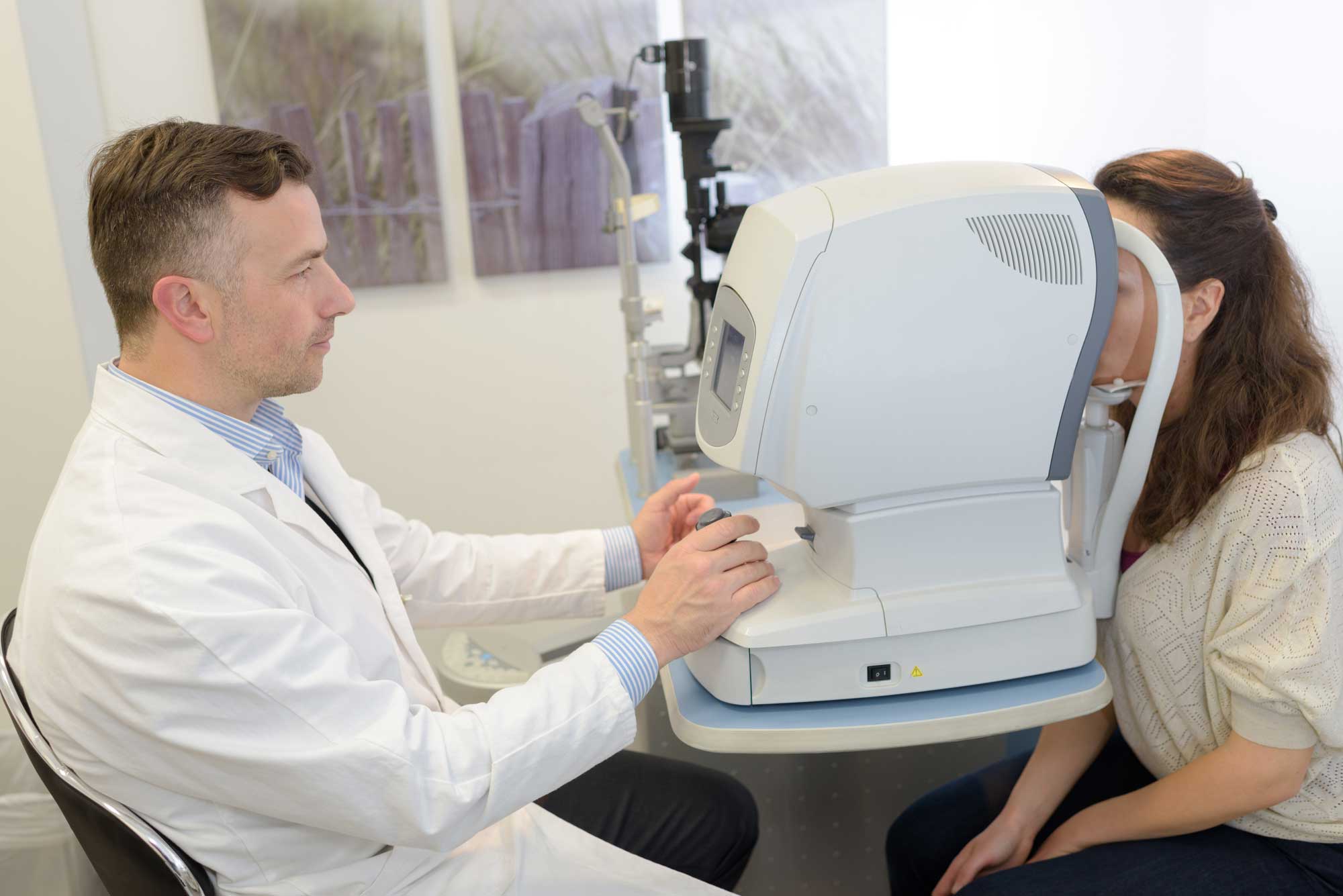Has your optometrist recommended an optical coherence tomography (OCT) scan? If you’re hesitant or uncertain, we completely understand. After all, you might not be familiar with OCT scans – what they are, how they work, and why you could benefit from a scan. As it turns out, this advancement in technology is enhancing the way doctors diagnose and treat serious eye issues like glaucoma and retinal diseases.
What Is an OCT Scan?
About OCT Scans
An OCT scan is an imaging test that uses light waves to take pictures of your retina. However, these aren’t any ordinary pictures. An OCT machine can capture a 3D scan of your retina that shows its varying thickness levels, which can help your optometrist make a map of your eye. This scan reveals the cross sections of your retina, so your optometrist can view all of its layers.
An OCT scan is a quick and painless procedure that your optometrist can complete at your routine checkup, so long as he or she has the right machine. First, your eye doctor might put dilating drops in your eyes make it easier to examine your retinas. This step isn’t always necessary (source). If you do receive dilating eye drops, your eyes might feel sensitive to light for a few hours afterward. Next, you’ll sit in front of the OCT scan machine and rest your head on a support bar. As the equipment takes the scan, try to stay still. The machine won’t come into contact with your eyes, and it only takes about 5 to 10 seconds for the scan to complete.
Could You Benefit from an OCT Scan?
The truth is, anyone can benefit from an OCT scan because it can reveal details about your health. For example, in a recent study conducted by Washington University School of Medicine, participating doctors were able to determine whether or not a person was likely to develop Alzheimer’s disease using OCT scans. They did so by measuring the thickness of the retina and fibers in the optic nerve. OCT scans can also help your optometrist detect early stages of certain retinal diseases and other eye problems, such as the following:
- A macular hole occurs when you have an opening or tear in your macula. This causes things to look blurry in your central vision. If left untreated, a macular hole can cause a blind spot in your vision.
- A macular pucker is a wrinkle in your macula. It can cause the same issues as a macular hole, but the spot in your vision might look more like a wave than a circle.
- A macular edema is caused by fluid buildup in your macula. With macular edema, the colors you see might look washed out and objects may appear blurry.
- Age-related macular degeneration also affects the macula. Routine OCT scans can detect this condition early, and your optometrist can help you slow down its progression.
- Glaucoma occurs when fluid builds up near the front of your eye. As a result, it damages the optic nerve if left untreated.
- Central serous and diabetic retinopathy can lead to a detached retina, which is a serious eye emergency.
- Vitreous traction happens when a gel-like substance begins to form between the lens and retina. This causes the vitreous cortex to pull away from the retina, but the earlier it is detected, the higher the likelihood of a successful treatment.
_____
Despite their effectiveness, OCT scan machines are still relatively new, so not every optometrist office currently has one. If you live near southwest Missouri, however, you’re in luck! At Heffington’s, we are able to administer OCT scans with our Topcon 3D OCT-1 Maestro. We would love to schedule an OCT scan for you, to help keep your eyes in the best shape possible.
Since 1975, the Heffington family has been assisting the Springfield community with top-quality eye care and affordable eyeglasses and contacts. One of the unique features of our family-owned business is that we manufacture lenses at our own laboratory, giving us total control over the service and pricing, and we’re happy to pass our savings on to you. To learn more about our products and services, please get in touch with us online, send an email to asktheexperts@heffingtons.com, or give us a call at 417-869-3937 (Optiland location) or 417-882-3937 (House of Vision location). We look forward to hearing from you!

